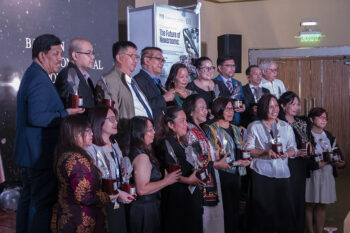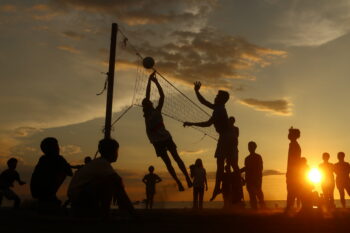GENERAL SANTOS CITY (MindaNews / 10 September) – By coincidence, our urgent trip to Cotabato City last September 4 and the September 3 report of The Philippine Star that we downloaded that very night on returning from our trip exposed the neglect that is most evident in the sorry state of the Moro communities. In my trip, I saw the neglect. In the Star report, the neglect which breeds neglect surfaced in the plenary deliberation on SB 2894, the Senate substitute bill for the original Draft Bangsamoro Basic Law.
Two Contrasting States
Travelling on Cotabato City – General Santos City via Dalican road one would see two contrasting states of socio-economic development of what may be called, for candid comparison, “Christian Mindanao” and “Muslim Mindanao” – the first seen from the road segment about 150 kilometers from General Santos City to Esperanza, Sultan Kudarat; the second, from that about a little more than 100 kilometers from Ampatuan, Maguindanao to Cotabato City.
For fuller understanding, let’s view history closely. The Ampatuan-Cotabato City area has been Moro communities since 1500 or earlier; the General Santos City-Esperanza area was mostly malarial wilderness when the National Land Settlement Administration established its first settlement in Lagao in 1939, later the nucleus of General Santos City, and in 1940 opened Marbel Settlement (now the booming Koronadal City) as its base to develop the Upper Valleys. The historical neglect of Muslim Mindanao cries for justice.
To understand fully the neglect and the injustice, consider this: Among the laudable programs of the Commission on National Integration (1957-1975), established to address the Mindanao problems, was the resettlement of Cultural Minorities. It had opened one or two settlements for the Tedurays and Manobos which all eventually reverted to wilderness for lack of sustained assistance — unlike the Christian settlements that have received constant assistance from the Congress and the Palace.
What evidence of neglect have we seen? That trip to Cotabato City was our first in the last three years or so.
The road: The two-lane concrete Cotabato City – General Santos City via Dalican road was constructed in the 1970s from Cotabato City to the port of Makar, bypassing the General Santos City Proper. During the past 40 years, the “Muslim Mindanao” segment of the road has remained two-lane and, except for a few short stretches, is of the same original concrete of the 1970s. In contrast, most of the “Christian Mindanao” segment is four-lane – in some stretches five-lane; in a few, the sixth lane finished or in progress.
Traffic on the “Muslim Mindanao” segment of the road is “lonely” –– from Esperanza, Sultan Kudarat to the Cotabato City Airport in Awang, Datu Odin Sinsuat, Maguindanao, (the airport about seven kilometers from Cotabato City). Obviously, the volume of traffic does not call for the expansion of the road and its constant maintenance. Does this justify the keeping of the road in its present state?
The “Christian Mindanao” segment of the road traverses Esperanza and Isulan of Sultan Kudarat, both established by Ilonggo settlers in the 1950s and 1960s; Sto. Nino, Norala, Surallah, Banga in Allah Valley and Koronadal City, Tupi, Polomolok to General Santos City of South Cotabato – the NLSA settlements in 1939 and 1940-42. This has become the trunk of development.
From the late 1990s, the Isulan – Koronadal City via Tacurong City circuit has been developed into a four-lane road. So was the other circuit from Koronadal City through the mining town of Tampakan to Tupi. Now commercial and passenger traffic is 24-our daily in what used to be a vast wilderness until the 1940s.
From the road: From the road, we see the contrasting scenes of social and economic progress against stagnancy or even deterioration. These reflect the Mindanao-wide contrasting scenes. The underlying truth clearly explains the wide socio-economic gap that separates Muslim Mindanao from Christian Mindanao: Assistance breeds progress; neglect breeds backwardness.
This is the urgent reason for the serious review of how the creation of the “autonomous region in Muslim Mindanao” (Article X, Section 15 of the 1987 Constitution) has been implemented according to subsequent Sections 16 to 21 with particular reference to 18 and 20. The 25-year autonomous region, under the name Autonomous Region in Muslim Mindanao (ARMM) has failed to carry out the vision. This is being reformed under a new organic act and a new name.
At the House
But the Bangsamoro Basic Law, the new organic act that will reform the political and socio-economic structure of government of the 25-year-old autonomous region under the new name Bangsamoro or Bangsamoro Autonomous Region has bogged down in Congress due to conflicting political interests and anti-Moro biases and prejudices among legislators. The longer Muslim Mindanao is denied the necessary political reform and fiscal assistance, the farther it will lag behind Christian Mindanao.
The September 3 Star report (Congress urged: Hold extra session days to pass BBL) is primarily about the appeal to the Congress by Prof. Miriam Coronel-Ferrer, the chair of the government peace panel, to hold extra session days starting September 7 “to ensure the passage of the Bangsamoro Basic Law (BBL) this month” – despite great odds.
According to the report, “Ferrer made the call in reaction to the pronouncement of Cagayan de Oro Rep. Rufus Rodriguez and Sen. Ferdinand Marcos Jr. that the House of Representatives and the Senate may not have enough time to pass the BBL this month” and, in the worst scenario, they said, “they are not sure if the BBL would be enacted by 2016”.
According to two September 7 media reports (“MindaNews: House goes on 5-session days a week to pass BBL; Senate sets no deadline” and “The Philippine Star: Time running out on BBL – Speaker”), the appeal has been granted by the House – the Senate seeing no need for it — but with a damper as the headlines read. Besides the time running out, Speaker Belmonte cannot guarantee quorums with the House members opposed to the Thursday and Friday sessions due to the advent of the election season.
At the Senate
Back to the Star report of September 3, the “related item” at the tail-end about the Senate plenary deliberation on SB 2894 is most relevant to the neglect of Muslim Mindanao. As reported, Sen. Teofisto D. Guingona III was interpellating Sen. Ferdinand R. Marcos, Jr., the author of SB 2894, the substitute bill of SB 2408 or the original Draft BBL.
Subjects of the interpellation were the deletions in SB 2894 of provisions in SB 2408 that will give Bangsamoro economic autonomy and, in the short term, allow it a good start to catch up with Christian Mindanao. The deletions in SB 2894 will destine the Bangsamoro Autonomous Region (BAR), the revised name, to continued beggary at the mercy of the Congress and lagging behind Christian Mindanao.
SB 2408 has two articles — Article XII on Fiscal Autonomy and Article XIII on Economy and Patrimony — to make the Bangsamoro, in the long term, economically autonomous. These have been drastically revised – entire sections deleted, provisions in some sections deleted and substituted, and new provisions added — to deny the Moros the meaningful autonomy they hope for as promised to them.
In a third article — Article XIV on Rehabilitation and Development – SB 2404 provided the Special Development Fund (|Section 2) for the immediate implementation of the “program for rehabilitation and development” (Section 1). Marcos re-titled the Article in SB 2894 as “Normalization, Rehabilitation and Development” and substituted provisions focused on the disarmament of MILF and the reintegration of the MILF rebels with nothing on the immediate rehabilitation and development provided in SB 2408.
Questioned by Guingona why the P17-billion SDF was deleted, “Marcos admitted he did not see the purpose for establishing such a fund”. Guingona disagreed. Could he have moved Marcos to see the “actual and immediate need for the SDF”?
The Star quoted Guingona: “I see a need and I see an opportunity: the need is that the would-be Bangsamoro is one of the poorest, if not the poorest, areas in the country. The poverty is stark, illiteracy is high, and health conditions are below par. Clearly, there is a need.”
In the long term, he said that if the Bangsamoros are given “political autonomy without giving them the financial wherewithal, then we are just dooming them to failure”. This is relevant to Guingona’s second question.
He asked Marcos “why the provisions on the creation of government-owned and controlled corporations (GOCCs) had been deleted”. Anticipating constitutional and legal issues, he argued that “that whatever the Bangsamoro government passes, whatever they create shall be consistent with the Constitution, pertinent laws and Republic Act No. 10149, the GOCC Governance Act of 2011”.
Marcos explained: “What a local government does is create what we referred to as an economic enterprise. It is a financial operation where the local government makes money. Tourism, for example, a resort, a restaurant, whatever it is, development of a mall – that is an economic enterprise. And there is nothing that holds an LGU,”
The cat is out the bag. Marcos thinks Bangsamoro is just another LGU. That explains the deletion of the preamble in SB 2894 and the numbering of the sections like that in any ordinary statute. Regardless of its title, SB 2894 — without a preamble and with section numbers not starting from “1” in every article — is a “deformed” organic act.
The Challenge
If Mr. Marcos “did not see the purpose for establishing” the SDF and its “actual and immediate need” in Muslim Mindanao, we can give him the benefit of charity. But he has no excuse for not “seeing”. As senator, he has a national constituency. The Moros are his constituents as much as the Ilocanos. All that Guingona described as the deplorable socio-economic state of Muslim Mindanao are in the reports and statistics of government agencies concerned which all legislators must scrutinize in aid of legislation.
We challenge Mr. Marcos together with all other senators to see the wide socio-economic gap between Muslim Mindanao and Christian Mindanao. So seeing, they will come to grips with the critical necessity of the SDF, the GOCCs and other fiscal and economic provisions in Draft BBL. In fact, even with these provisions implemented sincerely, fully and honestly, it will take generations for Muslim Mindanao to catch up.
How can Mr. Marcos and his colleagues in the Senate “see” – that is, if they are sincere in their protestation to pass the BBL for peace and progress in Muslim Mindanao? From Laguindingan Airport of Misamis Oriental, they travel overland around Mindanao – to Iligan City, Marawi City, Cotabato City via Ramos Highway, General Santos City, Davao City and back to Cagayan de Oro City via Butuan City.
To see more thoroughly, from Cotabato City the party splits in two – Team 1 going to Davao City via General Santos City, Team 2 to Davao City via Digos City. On reaching Kabacan in North Cotabato, Team 2 splits in two – one taking a left turn for Cagayan de Oro City via Malaybalay City and the other proceeding to Digos City. On reaching Isulan, Sultan Kudarat, Team 1 splits in two – one turning left for Tacurong City, the other going straight ahead to Allah Valley area — and regroup in Koronadal City.
Aided by video, they will be back in the Senate with candid contrasting pictures of Muslim Mindanao and Christian Mindanao to enlighten deliberation. Are Mr. Marcos and the other senators willing to see truth first hand?
They should not fear for their security through Muslim Mindanao. Properly arranged, the MILF must be willing to provide security; the Moro mayor of every municipality must be willing to escort them personally to the next municipality. This will be a golden chance for the senators to see how civil and peaceful the Moros are when regarded with civility.
They can ask Moro leaders whether they will secede when Bangsamoro or Muslim Mindanao develops into a progressive autonomous Region. From the horses’ mouths, they can have their fear of secession either confirmed or dispelled.
D.B.A. But …
The challenge, not only for Mr. Marcos and the Senate but for the entire Congress, is offered, knowing it will be scoffed at — not only D.O.A. but D.B.A. – Dead before Arrival. But the end for which it is offered will live until the BBL that will establish a meaningful Bangsaoro is passed and vigorously, sincerely and properly implemented. Only then will Muslim Mindanao catch up then co-exist with Christian Mindanao on par socio-economically.
What are the odds now?
Even if Ferrer’s appeal succeeds against great odds, the BBL being deliberated now is of doubtful meaningfulness. In a Philippine Daily Inquirer report on September 9, the President was optimistic citing assurance from the Congress. But when has he ever been pessimistic? The MILF will wait ENIGMATICALLY until the passage of the BBL. (“Comment” is Mr. Patricio P. Diaz’ column for MindaViews, the opinion section of MindaNews. The Titus Brandsma Media Awards honored Mr. Diaz with a “Lifetime Achievement Award” for his “commitment to education and public information to Mindanawons as Journalist, Educator and Peace Advocate.”)







